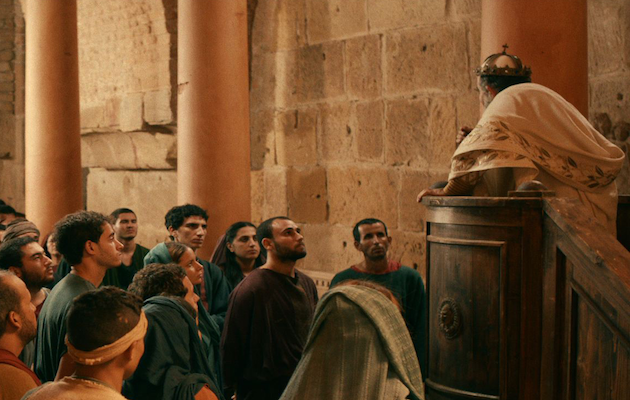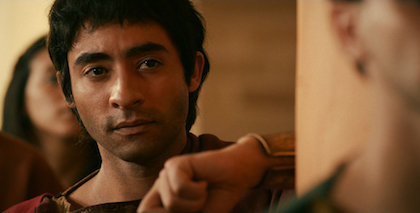A cry for truth from Hippo
A film about the life and conversion of Agustine of Hippo was screened at the Athenaeum of Barcelona. A fully North African team and cast worked on the project for six years.
Protestante Digital · BARCELONA · 21 JANUARY 2019 · 14:56 CET

The history of the establishment of Christianity in the North African region is as unquestionable as it is unknown.
The contribution of this territory to the growth and development of the church through a public defense of the ideas of the gospel and of the faith is seen in figures such as Tertullian Cyprian and Agustine.
“When the Roman occupying power discouraged and persecuted Christians during the first three centuries, surprisingly, Christianity found a foothold and thrived among the Berber population”, said Gunnar Selstø and Frank-Ole Thoresen in a article for the Lausanne Movement.
After the declaration of Christianity as the official religion of the Roman Empire, there was a turn of events, and the religion of Christians begins to be seen by large sections of the indigenous population as another element of the identity of the foreign and oppressive power.
There was also a conflict of nuances and visions between the Roman church and the Donatist native faith.
AGUSTINE OF HIPPO
In the midst of all that, appears Agustine of Hippo, considered one of the main intellectual exponents of Christianity.
Samir Seif has presented “Agustine, Son Of Her Tears”, a new film which tells the life of Agustine of Hippo, from his childhood to his conversion.

During six years, a fully North African technical team and cast have created this film, with the support of the Algerian and Tunisian governments, which is aimed at the population of the region.
The film was awarded with the best artistic production prize of the Alexandria Film Festival in 2017, and with the prize of the public in the Arab International Film Festival of Oran, also in 2017.
A COMMON STORY
The Christian association Agape and the Diocesan Secretariat of Ecumenism of the Archdiocese of Barcelona, jointly organised a screening of the film in Athenaeum of Barcelona.
The screening brought together more than a hundred representatives of the evangelical and Catholic churches in the city, as well as regional officials, such as the Director of Religious Affairs of the Catalan government, Marcel·lí Joan.
According to the director of the Catholic institution, Montserrat Puigdellívol, “the initiative is part of a long list of collaborations between Agape and the Secretariat”.
“The idea was to reach those who hold influential positions in education and other areas”, she added.
Agape emphasised its will of generating reflection with the film and find common bonds with the everyday life of Agustine. “This is a story that can be anyone's”, said the director of the entity in Spain, Nacho Marqués.
“Who is not in a spiritual search?”, he asked the audience at the beginning of the event.
A MOVIE WITH MORAL IMPLICATIONS
The film revolves between the biographical narrative and the documentary, using a dramatisation located in the present day, which aims to bring the viewer closer to the story of Agustine.
The film focuses, above all, on the process of conversion to Christianity of the scholar and especially on his concern for searching and finding the truth.
That led him to the adoration of knowledge and esoteric practices, such as Manichaeism, but ended up, by the persistence of his mother, the discovery of Ambrose and a progressive fatigue of the life of the elite in important cities of the empire, such as Carthage, Rome or Milan, reinforcing his need of the acceptance of the gospel.
Seif's work is aimed at a Christian and non-Christian audience alike, from the countries of North Africa. It has already been screened in Egypt, Tunisia and Algeria, as well as Lebanon and France.
Published in: Evangelical Focus - culture - A cry for truth from Hippo
